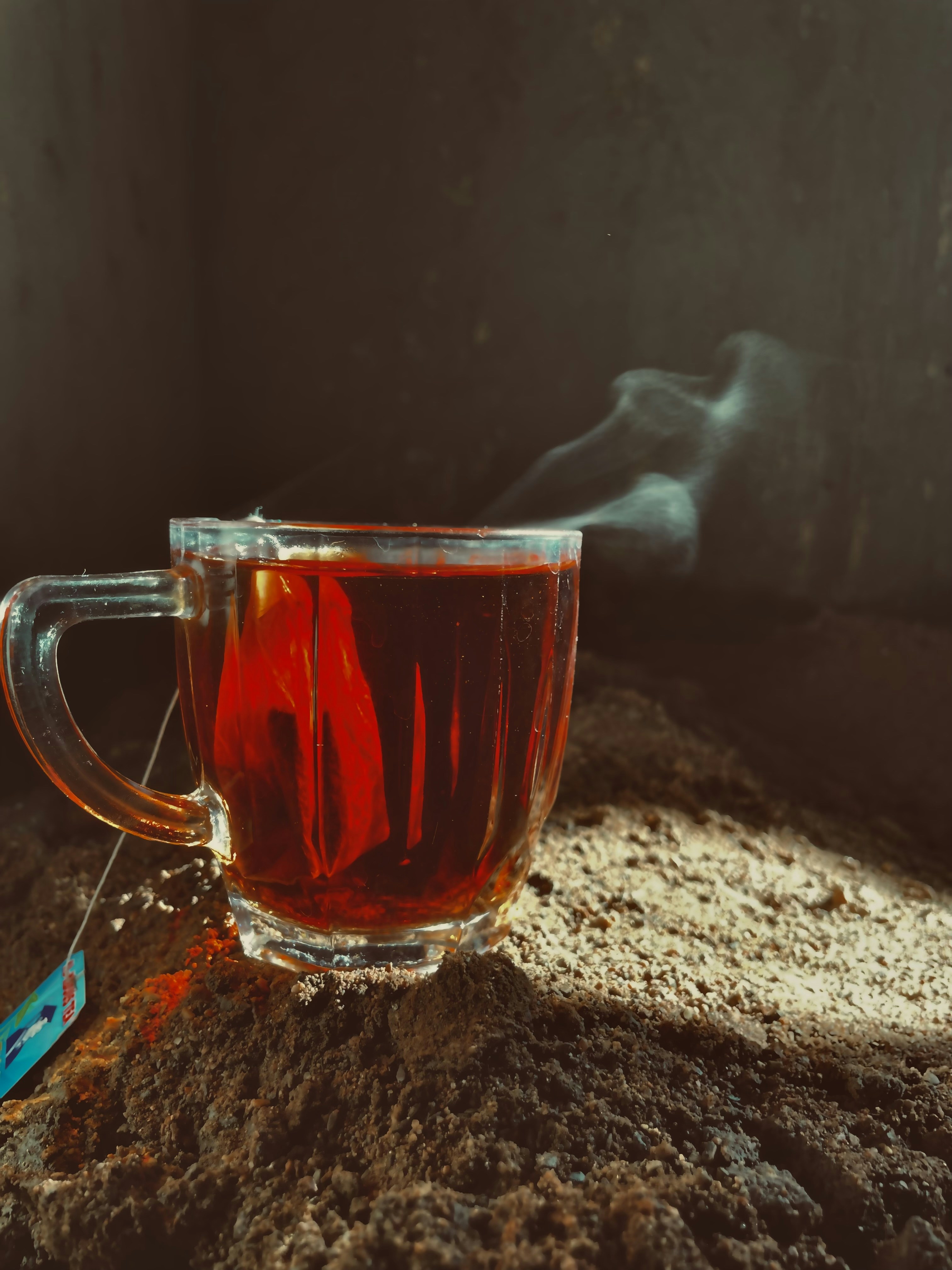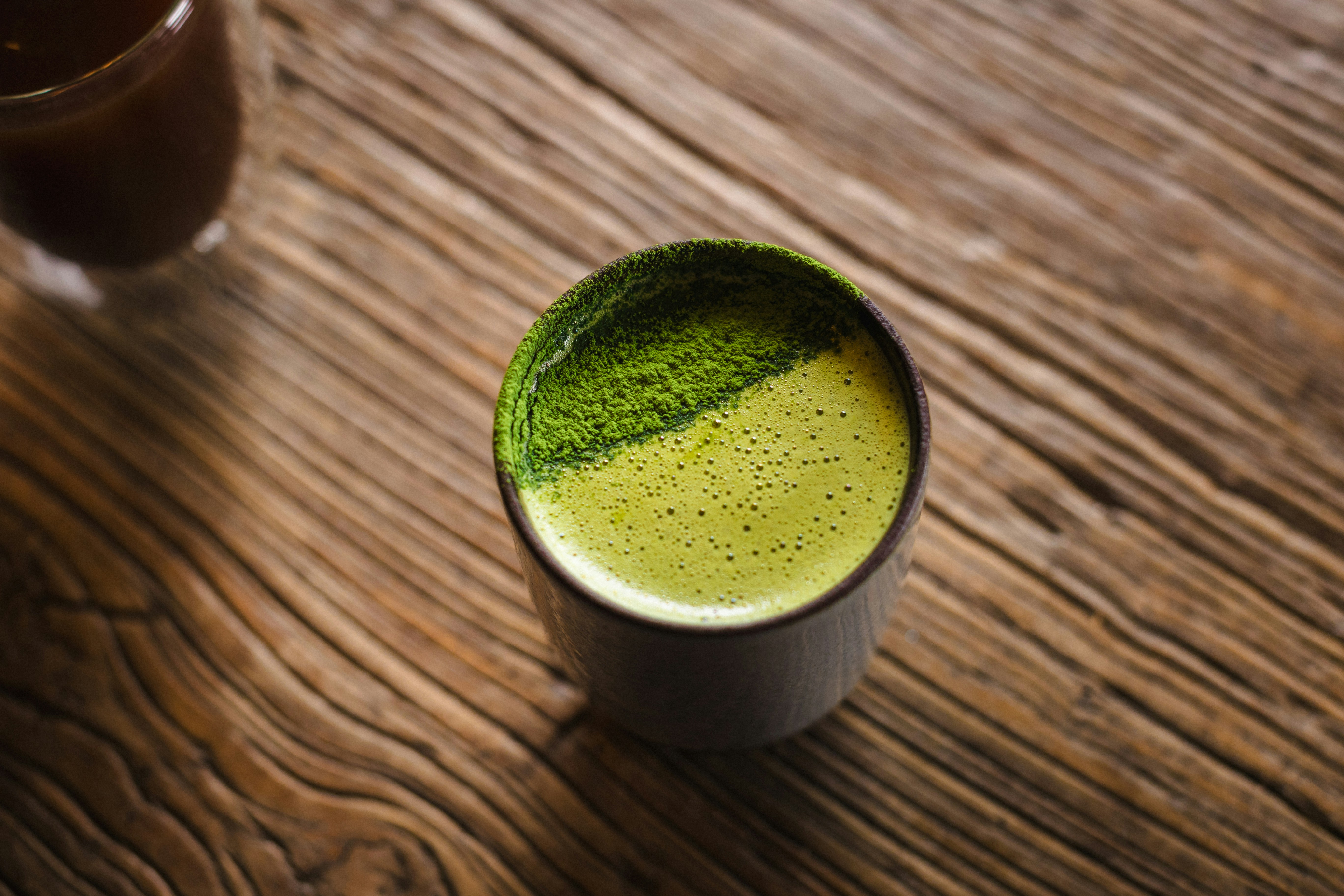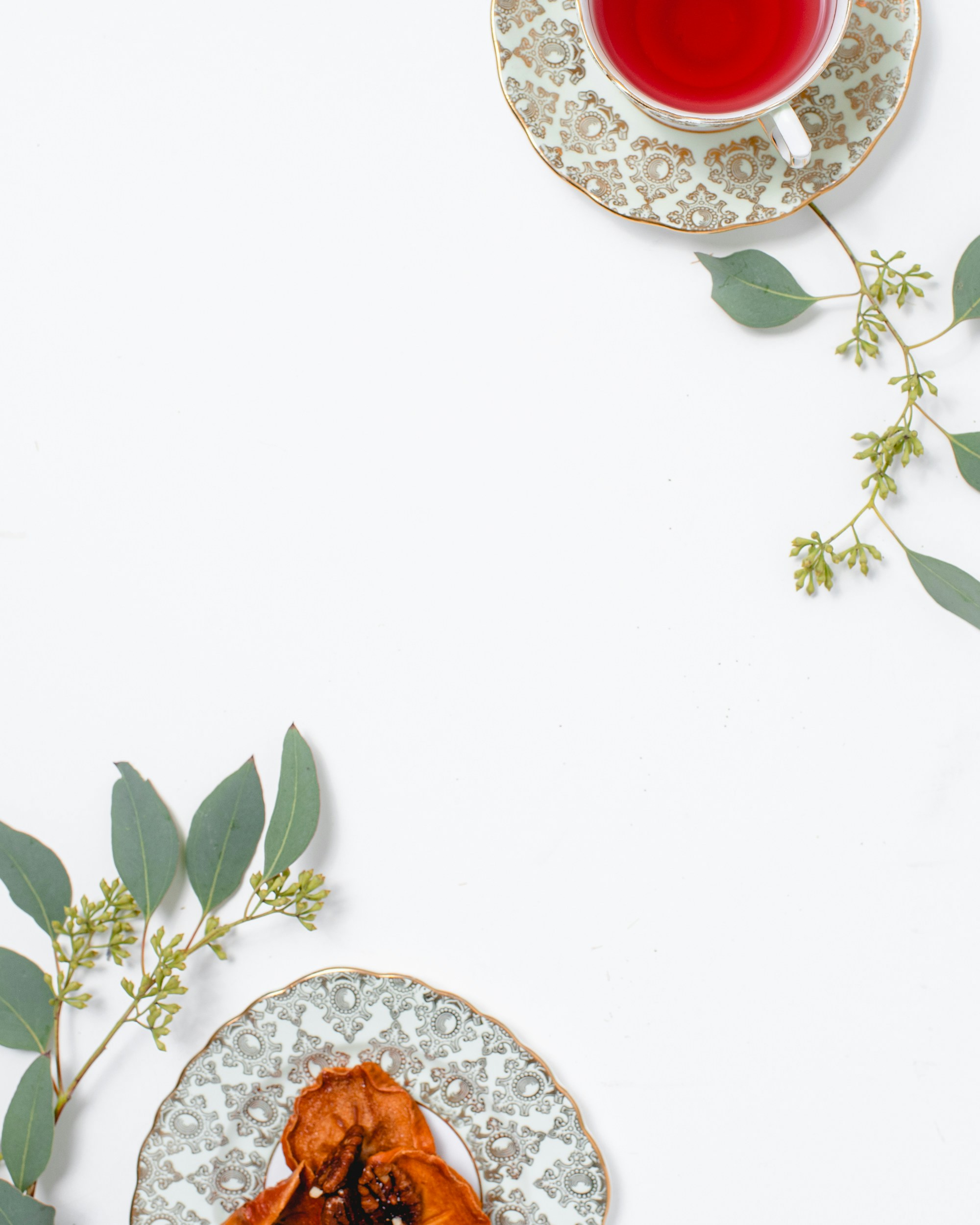Introduction: The Spiritual Journey with Oolong
Oolong tea, often celebrated for its unique flavor and health benefits, holds a significant place in the realm of spiritual wellbeing. This ancient beverage, originating from China, is more than just a refreshing drink; it acts as a conduit for mindfulness and introspection. By engaging with Oolong tea through intentional rituals, individuals can cultivate a deeper connection to themselves and their surroundings, fostering a sense of inner peace and personal growth.
The spiritual journey with Oolong tea begins with the act of preparation. This process requires focus, encouraging practitioners to slow down and immerse themselves in the moment. Whether it is selecting the tea leaves, boiling water to the perfect temperature, or observing the leaves unfurl as they steep, each step invites mindfulness into everyday life. This mindfulness can lead to greater awareness of one’s thoughts and emotions, helping to clear the mental clutter that often distracts from spiritual exploration.
Moreover, Oolong tea is known for its unique balance of oxidative and non-oxidative properties, which contributes to a calming yet alert state of mind. This special quality makes it an ideal beverage for meditation and reflection. As the warm liquid courses through the body, it can help ease tension and inspire a sense of tranquility, allowing individuals to connect deeper with their spiritual selves.
Engaging with Oolong tea does not only enhance mindfulness but also supports personal growth. Through regular tea rituals, practitioners can establish a routine that invites reflection and intentionality into their lives. This consistency fosters a safe space for self-discovery, enabling individuals to explore their spiritual paths with greater clarity and intention. As we delve deeper into the relationship between Oolong tea and spiritual wellbeing, it becomes clear that this simple act has the potential to elevate our everyday experiences into meaningful moments of transformation.
What is Oolong Tea? A Closer Look
Oolong tea, a traditional Chinese beverage, has garnered attention for its rich flavor and potential spiritual benefits. Originating in the Fujian province, this tea is a unique blend of black and green teas, offering a wide spectrum of taste profiles. The name “oolong” translates to “black dragon,” a nod to its dark, curly leaves that resemble a dragon’s body. The origins of Oolong tea date back centuries, with historical references indicating its production in the early Ming dynasty. Over time, the art of crafting this tea has evolved, leading to a variety of flavor profiles and qualities.
The processing of Oolong tea is meticulously orchestrated, characterized by a partial oxidation process. This process tends to range between 10% to 80%, contributing to Oolong’s distinct identity in the tea family. First, fresh tea leaves are withered to reduce moisture content, followed by bruising to initiate oxidation. The leaves are then pan-fired or baked to halt oxidation, which preserves their unique characteristics. Each region in China, and even Taiwan, introduces its own nuances to Oolong through variations in processing methods, regional terroir, and leaf selection. Such diversity accounts for a broad spectrum of flavors, ranging from floral and fruity to woody and nutty.
The flavor profile of Oolong tea is equally remarkable. It is renowned for its complexity, often described as smooth and aromatic. Initial sips may unveil subtle floral notes, followed by richer, toasted undertones. This unique palette not only offers a delightful drinking experience but also promotes a heightened sense of awareness and mindfulness, enhancing spiritual connections. The interplay of flavors can evoke calmness and inspire a meditative state, making Oolong tea a favored choice among those seeking to bolster their spiritual wellbeing. Through understanding the origins, processing techniques, and flavor profiles of Oolong tea, individuals can cultivate a deeper appreciation for this remarkable beverage.
Traditional Uses of Oolong in Spiritual Practices
The rich heritage of Oolong tea extends far beyond its delightful flavor and health benefits; it has played a significant role in various spiritual practices, particularly in East Asia. This semi-oxidized tea, renowned for its complexity and depth, has been integrated into numerous cultural traditions where it serves as a conduit for spiritual nourishment and reflection.
In China, Oolong tea has been an integral part of tea ceremonies for centuries. These ceremonies emphasize mindfulness and appreciation of the tea, encouraging participants to engage in a meditative state. The act of brewing Oolong, from selecting the right leaves to precise water temperature, becomes a ritual that allows individuals to connect with their inner selves and the present moment. This practice of mindfulness is a key element in many spiritual paths, highlighting Oolong’s role in promoting mental clarity and a deeper connection to one’s spirituality.
Moreover, Oolong tea has been utilized in various Asian cultures as an aid for meditation. The act of sipping this fragrant tea can inspire tranquility, fostering an enhanced meditative experience. The unique aroma and flavor profile of Oolong often encourage moments of stillness and reflection, allowing practitioners to find their center amid the chaos of daily life.
The spiritual significance of Oolong has also been acknowledged in different etiquettes associated with its enjoyment. For instance, serving Oolong during gatherings is often seen as a gesture of respect and gratitude. Such customs not only strengthen social bonds but also promote shared contemplation among individuals, facilitating deeper connections on both personal and spiritual levels.
Ultimately, the traditional uses of Oolong tea reveal its profound impact on spiritual wellbeing, serving as a timeless tool for introspection, community bonding, and ceremonial reverence throughout East Asian cultures.
The Health Benefits of Oolong: Body and Mind Connection
Oolong tea, a traditional Chinese beverage, has garnered attention not only for its unique flavor profile but also for its potential health benefits that extend to both the body and mind. Research indicates that oolong tea offers a range of health advantages that contribute to mental clarity and emotional balance. Rich in antioxidants, oolong contains compounds that help combat oxidative stress, which is known to affect cognitive function and emotional health.
One of the primary benefits of oolong tea is its ability to enhance mental clarity. Studies have shown that certain polyphenols found in oolong can improve brain function by increasing mental alertness and focus. This can be especially beneficial during periods of stress or fatigue, allowing individuals to maintain productivity and a positive mindset. Furthermore, regular consumption of oolong tea has been linked to improved memory retention, providing an added mental edge that can influence daily life.
Beyond cognitive benefits, oolong tea promotes emotional balance. The amino acid L-theanine, prevalent in this tea, is known for its calming effects. It can induce relaxation without causing drowsiness, thereby helping individuals manage stress and anxiety. This unique property creates a harmonious connection between the mind and body, reinforcing the notion that physical health directly impacts spiritual wellbeing. When stress levels are managed effectively through the consumption of oolong tea, individuals may experience a greater sense of inner peace and emotional stability.
Moreover, the holistic approach towards health embodied by oolong tea emphasizes the interrelation between mental and physical health. By fostering overall wellbeing, oolong tea supports a spiritual connection that nurtures deeper awareness and mindfulness. Thus, incorporating oolong tea into daily routines may significantly enhance both body and mind, promoting a healthier, balanced lifestyle.
Mindfulness and Meditative Moments with Oolong
Incorporating Oolong tea into your daily routine can significantly enhance mindfulness and meditative practices. The act of brewing and savoring Oolong tea provides an opportunity to cultivate presence and explore spiritual growth through intentional rituals. One of the essential elements of mindfulness is being fully present, and tea preparation allows for focused attention on the process itself.
Begin by dedicating a specific time and space for your Oolong tea ritual. Choose a calm, quiet environment where you can sit comfortably without distractions. Ensure that all necessary materials are at hand, including your Oolong tea leaves, teapot, and cup. This preparation stage can be a meditative act in itself, guiding you to acknowledge the importance of self-care and ritual.
As you proceed to brew the tea, focus on the sensory experiences involved. Notice the shape and color of the Oolong leaves, the sound of water boiling, and the aroma released during steeping. Engaging all your senses not only enhances the flavor but also invites deeper reflection and mindfulness. While the tea brews, take this time to meditate or practice breathing exercises, allowing your mind to settle and your spirit to connect with the present moment.
Once the tea is ready, pour it slowly, being intentional with each movement. Rather than hurriedly consuming your drink, take time to appreciate the warmth of the cup in your hands and the vibrant hues of the infused tea. With each sip, be mindful of the flavors unfolding, allowing your taste buds to participate in the experience fully. This practice fosters a deeper sense of gratitude for the simple pleasures and can lead to a greater awareness of interconnectedness within yourself and the world around you.
Through the mindful preparation and enjoyment of Oolong tea, you can create a sacred space for reflection, helping to nurture your spiritual wellbeing and facilitate a profound connection with your inner self.
Anecdotes of Transformation Through Oolong Tea
Throughout history, numerous individuals have shared their profound experiences with Oolong tea, marking its role in their spiritual journeys. One such story comes from Emily, a busy corporate professional whose life was engulfed in stress and fast-paced living. After discovering Oolong tea, she began to incorporate it into her daily routine as a time for mindfulness. Each cup invited her to pause, reflect, and connect with the present moment. This simple ritual of brewing Oolong transformed her perspectives, leading her toward a sense of inner peace and clarity.
Additionally, Robert, an amateur photographer, found a new lens through which to experience his surroundings after adopting Oolong tea. He discovered that the act of making and enjoying this tea not only provided comfort but also inspired deeper appreciation for the art around him. The serene process of steeping Oolong encouraged him to slow down, helping him to capture the beauty he often rushed past in his daily life. This newfound mindfulness resulted in a significant enhancement to both his photography and personal contentment.
Another inspiring narrative comes from Maya, a wellness coach who integrated Oolong into her practices. For her, this tea became more than a beverage; it served as a symbol of connection with her clients. During coaching sessions, she would offer them Oolong tea, creating a calming space for vulnerable conversations. Many clients reported that sipping this tea during their sessions helped them access deeper emotions, allowing for transformative breakthroughs in their journey toward spiritual health.
These personal stories illustrate the potential of Oolong tea not merely as a beverage but as a conduit for spiritual nourishment. The anecdotal evidence shared by individuals like Emily, Robert, and Maya emphasizes the profound impact this tea can have on one’s spirituality and emotional wellbeing, fostering connections to the self and to others in meaningful ways.
Cultural Rituals: Oolong and Spiritual Community
Oolong tea, with its rich history and varied flavor profiles, has long been esteemed not only for its health benefits but also for its cultural significance in community gatherings and rituals. Across different cultures, the act of sharing Oolong tea serves as a powerful tool for fostering connection, belonging, and spiritual camaraderie. In traditional Chinese culture, tea ceremonies are an essential practice that emphasizes respect and appreciation. These ceremonies often involve the preparation and serving of Oolong tea, allowing participants to engage in a rhythmic exchange that nurtures bonds among individuals.
Such gatherings often transcend mere social interaction; they become rituals steeped in mindfulness and presence. The preparation of Oolong tea, from selecting the leaves to monitoring the brewing process, signifies care and intentionality, which can enhance the collective experience. When shared among friends, family, or community members, Oolong tea becomes a medium through which spiritual discussions, reflections, and stories are exchanged, creating a unified atmosphere conducive to personal growth and shared experiences.
In many Southeast Asian cultures, Oolong tea is an integral part of community celebrations and religious observances. When offered during festivals or family reunions, the tea symbolizes goodwill and harmony. Rituals involving Oolong tea often serve as a reminder of shared values and conviviality, reinforcing the ties that bind individuals together in their spiritual journeys.
As contemporary lifestyles continue to shift, the role of Oolong tea remains significant in promoting mindfulness and community. Today, tea houses and gathering spaces that celebrate Oolong tea emphasize the importance of connection through shared rituals. Whether partaking in a formal tea ceremony or simply gathering with friends over a cup of Oolong, each instance encapsulates a moment of unity, nurturing both individual and collective spiritual well-being.
Choosing High-Quality Oolong Tea
Selecting high-quality Oolong tea is essential for enhancing both its flavor and the spiritual experience it can provide. When purchasing Oolong tea, it’s important to consider the origin and processing method. Taiwan and China are renowned for their exceptional Oolong varieties, with the Tie Guan Yin and Da Hong Pao being popular choices. Look for loose-leaf tea rather than tea bags, as loose leaves typically offer richer and more complex flavors. Inspect the leaves for a vibrant color, which indicates freshness, and ensure they are whole, as broken leaves may imply lower quality.
Preparing Oolong for Spiritual Practices
Preparation plays a crucial role in maximizing the benefits of Oolong tea during spiritual practices. Begin by using freshly filtered water, as impurities in water can affect the tea’s taste. Heat the water to around 190-200°F (88-93°C) to preserve the delicate flavors. Steeping time is equally important, with a range of 3-5 minutes recommended, depending on personal preference and the specific type of Oolong. Multiple infusions can also enrich the experience; the leaves can often be steeped several times, revealing different flavor profiles with each infusion.
Creating the Right Ambiance
Setting the right ambiance is critical when incorporating Oolong tea into spiritual rituals. Choose a quiet space where distractions are minimal. Soft lighting or candlelight can enhance relaxation and focus, while the gentle warmth of the tea can create a comforting atmosphere. Consider playing calming music or nature sounds to further promote tranquility. Engaging in deep, mindful breathing before sipping your tea can elevate the experience, allowing you to be fully present. Additionally, employing a ritualistic approach—such as using specific teaware or arranging your space thoughtfully—can deepen your connection to the tea, making it an integral part of your spiritual practice.
Conclusion: Embrace Your Spiritual Journey with Oolong
As we conclude our exploration of the profound connection between Oolong tea and spiritual wellbeing, it becomes evident that tea drinking can serve as a powerful ritual in one’s spiritual journey. Oolong, renowned for its unique flavor, aroma, and several health benefits, offers more than just a delightful beverage. It is a companion for introspection, mindfulness, and connection to one’s inner self.
Incorporating Oolong tea into your daily routine can help create a sacred space for reflection and relaxation, allowing you to engage with your thoughts and emotions on a deeper level. The act of brewing a cup can be meditative in itself; from choosing the leaves to watching the steam rise, every step encourages presence and mindfulness. This mindful practice cultivates an environment where personal growth and spiritual exploration are not only welcomed but thrive.
Moreover, as you experiment with different flavors and preparation methods, you may discover nuances within the tea that resonate with various aspects of your spiritual path. Each sip can become an invitation to connect with your intentions, fostering a deeper appreciation for the present moment and encouraging you to explore more profoundly what lies within.
We encourage you to embrace your personal journey by incorporating Oolong tea into your spiritual practices. Create rituals around it, whether it be through tea ceremonies, quiet moments of contemplation, or sharing a pot with loved ones. Explore the myriad ways in which this remarkable tea can enhance your experiences and offer support on your path. Remember, every cup of Oolong presents an opportunity for mindfulness, and with it, an enriching voyage towards self-discovery and spiritual fulfillment.








Leave a Reply